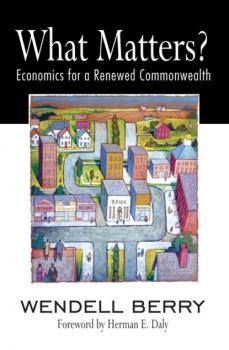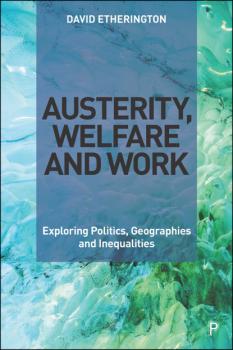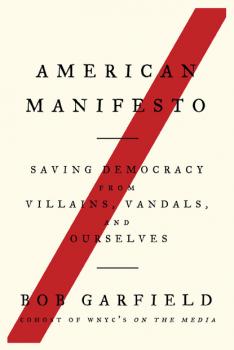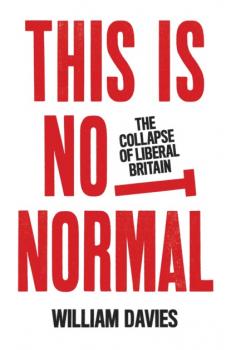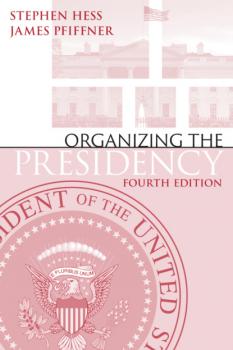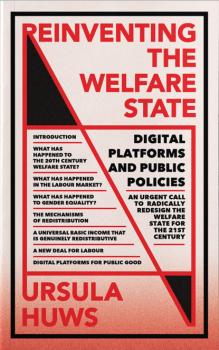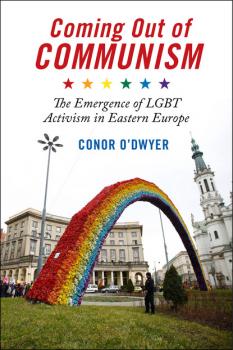Экономика
Различные книги в жанре ЭкономикаWhat Matters?
"The reasoned and insistent exhortations of a man with a cause who, rather than mellowing with age and wisdom, continues to grow in forcefulness and vision." — Booklist Over the years, Wendell Berry has sought to understand and confront the financial structure of modern society and the impact of developing late capitalism on American culture. There is perhaps no more demanding or important critique available to contemporary citizens than Berry's writings – just as there is no vocabulary more given to obfuscation than that of economics as practiced by professionals and academics. Berry has called upon us to return to the basics. He has traced how the clarity of our economic approach has eroded over time, as the financial asylum was overtaken by the inmates, and citizens were turned from consumers – entertained and distracted – to victims, threatened by a future of despair and disillusion. For this collection, Berry offers essays from the last twenty-five years, alongside new essays about the recent economic collapse, including “Money Versus Goods” and “Faustian Economics,” treatises of great alarm and courage. He offers advice and perspective as our society attempts to steer from its present chaos and recession to a future of hope and opportunity. With urgency and clarity, Berry asks us to look toward a true sustainable commonwealth, grounded in realistic Jeffersonian principles applied to our present day.
Austerity, Welfare and Work
David Etherington provides bold and fresh perspectives on the link between welfare policy and employment relations as he assesses their fundamental impact on social inequalities. Exploring how reforms, including Universal Credit, have reinforced employment and social insecurity, he assesses the role of NGOs, trade unions and policymakers in challenging this increasingly work-focused welfare agenda. Drawing on international and national case studies, the book reviews developments, including rising job insecurity, low pay and geographical inequalities, considered integral to neoliberal approaches to social spending. Etherington sets out the possibilities and challenges of alternative approaches and progressive new paths for welfare, the labour market and social rights.
Reform And Development In China: After 40 Years
This book provides a comprehensive review of China's experience in reform and opening up from political, social, and economic perspectives. It attempts to engage existing scholarly debates in three areas – first, how the party-state has evolved in the past four decades and whether it remains a Leninist system or has departed from this system; second, how public attitudes, values and behavior have been intertwined with institutional change, and how the state is expanding its welfare coverage to enhance regime legitimacy. Second, how China has attempted to explore new engines for its growth, with consideration towards environmental protection and technological progress.Chapters in this book are selected from three years of conference presentations co-organized by the Institute of Public Policy (IPP) at the South China University of Technology and UNESCO. Since 2014, IPP and UNESCO have co-hosted a series of annual international conferences and invited leading scholars from China, Europe, and the US to discuss the major challenges to China and the world.
American Manifesto
Do you fear for our democracy? Are you perplexed by Trumpism? Are you ready to throw in the towel? Don’t! This is your guidebook to reassembling our hyperpolarized American society in six (not-so-easy) steps, written by cohost of WNYC's On the Media Bob Garfield As is often observed, Trump is a symptom of a virus that has been incubating for at least fifty years. But not often observed is where the virus is imbedded: in the psychic core of our identity. In American Manifesto: Saving Democracy from Villains, Vandals, and Ourselves , popular media personality Bob Garfield examines the tragic confluence of the American preoccupation with identity and the catastrophic disintegration of the mass media. Garfield investigates how we’ve gotten to this moment when our identity is threatened by both the left and the right, when e pluribus unum is no longer a source of national pride, and why, when looking through this lens of identity, the rise of Trumpism is no surprise. Overlaying this crisis is the rise of the Facebook–Google duopoly and the filter bubble of social media, where identity is insular and immutable. But fear not! WNYC’s On the Media cohost Garfield has ideas about how we may counter the forces of fragmentation—the manifesto itself: six steps to take to reassemble our fractured society. A quick, fascinating read, American Manifesto offers not only a vision of a country in extremis, but also a plan for how to address the ways in which our democracy is imperiled. Provocative, profound, and sometimes hilariously profane, American Manifesto is a call to action like no other.
This is Not Normal
Since 2016, the UK has been in a crisis of its own making: but this is not the fault of Brexit but of a larger problem of our politics. The status of political parties, the mainstream media, public experts and officials have all been disrupted. Along the way, there have been shocking and exhilarating events: the unforeseen 2017 election result, the horrific details of Grenfell Tower and the Windrush scandal, the sudden rise and fall of the Brexit Party.As the 'mainstream’ of politics and media has come under attack, the basic norms of public life have been thrown into question. This Is Not Normal takes stock of a historical moment that no longer recognises itself. Davies tells a story of the apparently chaotic and irrational events, and extracts their underlying logic and long-term causes. What we are seeing is the effects of the 2008 financial crash, the failure of the British neoliberal project, the dying of Empire, and the impact of the changes that technology and communications have had on the idea of the public sphere as well as the power of information. This is an essential book for anyone who wants to make sense of this current moment.
Organizing the Presidency
Examining how the White House works—or doesn’t—before and after Trump Donald Trump has reinvented the presidency, transforming it from a well-oiled if sometimes cumbersome institution into what has often seemed to be a one-man show. But even Trump’s unorthodox presidency requires institutional support, from a constantly rotating White House staff and cabinet who have sought to carry out—and sometimes resist—the president’s direct orders and comply with his many tweets. Nonetheless, the Trump White House still exhibits many features of its predecessors over the past eight decades. When Franklin D. Roosevelt was inaugurated, the White House staff numbered fewer than fifty people, and most federal department were lightly staffed as well. As the United States became a world power, the staff of the Executive Office increased twentyfold, and the staffing of federal agencies blossomed comparably. In the fourth edition of Organizing the Presidency , a landmark volume examining the presidency as an institution, Stephen Hess and James P. Pfiffner argue that the successes and failures of presidents from Roosevelt through Trump have resulted in large part from how the president deployed and used White House staffers and other top officials responsible for carrying out Oval Office policy. Drawing on a wealth of analysis and insight, Organizing the Presidency addresses best practices for managing a presidency that is itself a bureaucracy.
Reinventing the Welfare State
The Covid-19 pandemic has tragically exposed how today’s welfare state cannot properly protect its citizens. Despite the valiant efforts of public sector workers, from under-resourced hospitals to a shortage of housing and affordable social care, the pandemic has shown how decades of neglect has caused hundreds to die. In this bold new book, leading policy analyst Ursula Huws shows how we can create a welfare state that is fair, affordable, and offers security for all. Huws focuses on some of the key issues of our time – the gig economy, universal, free healthcare, and social care, to criticize the current state of welfare provision. Drawing on a lifetime of research on these topics, she clearly explains why we need to radically rethink how it could change. With positivity and rigor, she proposes new and original policy ideas, including critical discussions of Universal Basic Income and new legislation for universal workers' rights. She also outlines a 'digital welfare state' for the 21st century. This would involve a repurposing of online platform technologies under public control to modernize and expand public services, and improve accessibility.
Coming Out of Communism
How homophobic backlash unexpectedly strengthened mobilization for LGBT political rights in post-communist Europe While LGBT activism has increased worldwide, there has been strong backlash against LGBT people in Eastern Europe. Although Russia is the most prominent anti-gay regime in the region, LGBT individuals in other post-communist countries also suffer from discriminatory laws and prejudiced social institutions. Combining an historical overview with interviews and case studies in Poland, Hungary, Romania, Slovakia, and the Czech Republic, Conor O’Dwyer analyzes the development and impact of LGBT movements in post-communist Eastern and Central Europe. O’Dwyer argues that backlash against LGBT individuals has had the paradoxical effect of encouraging stronger and more organized activism, significantly impacting the social movement landscape in the region. As these peripheral Eastern and Central European countries vie for inclusion or at least recognition in the increasingly LGBT-friendly European Union, activist groups and organizations have become even more emboldened to push for change. Using fieldwork in five countries and interviews with activists, organizers, and public officials, O’Dwyer explores the intricacies of these LGBT social movements and their structures, functions, and impact. The book provides a unique and engaging exploration of LGBT rights groups in Eastern and Central Europe and their ability to serve as models for future movements attempting to resist backlash. Thorough, theoretically grounded, and empirically sound, Coming Out of Communism is sure to be a significant work in the study of LGBT politics, European politics, and social movements.
Trump in the White House
Remember that metaphor about the frog that slowly cooks to death in the pot of increasingly warm water? Leftists have used it for years to describe how people can accept dwindling health care, fading job opportunities, eroding racial and gender equality—as long as the loss occurs gradually. Now, with Donald Trump having slouched off to Washington, most of the mainstream media are working overtime to convince us that we can still stand the heat. Leave it to John Bellamy Foster, one of the world’s outstanding radical scholars, to expose Trump for who and what he is: a neo-fascist. Just at the boiling point, Foster offers us cool logic to comprehend the system that created Trump’s moral and political emergency—and to resist it.In Trump in the White House, John Bellamy Foster does what no other Trump analyst has done before: he places the president and his administration in full historical context. Foster reveals that Trump is merely the endpoint of a stagnating economic system whose liberal democratic sheen has begun to wear thin. Beneath a veneer of democracy, we see the authoritarian rule that oversees decreasing wages, anti-science and climate-change denialism, a dying public education system, and expanding prisons and military—all powered by a phony populism seething with centuries of racism that never went away.But Foster refuses to end his book in despair. Inside his analysis is a clarion call to fight back. Protests, popular demands, coalitions: everyone is needed. Change can’t happen without radical, anti-capitalist politics, and Foster demonstrates that—even now, with the waters ever warming—it may yet be possible to stop the desecration of the Earth; to end endless war; to create global solidarity with all oppressed people. Could a frog do that?
